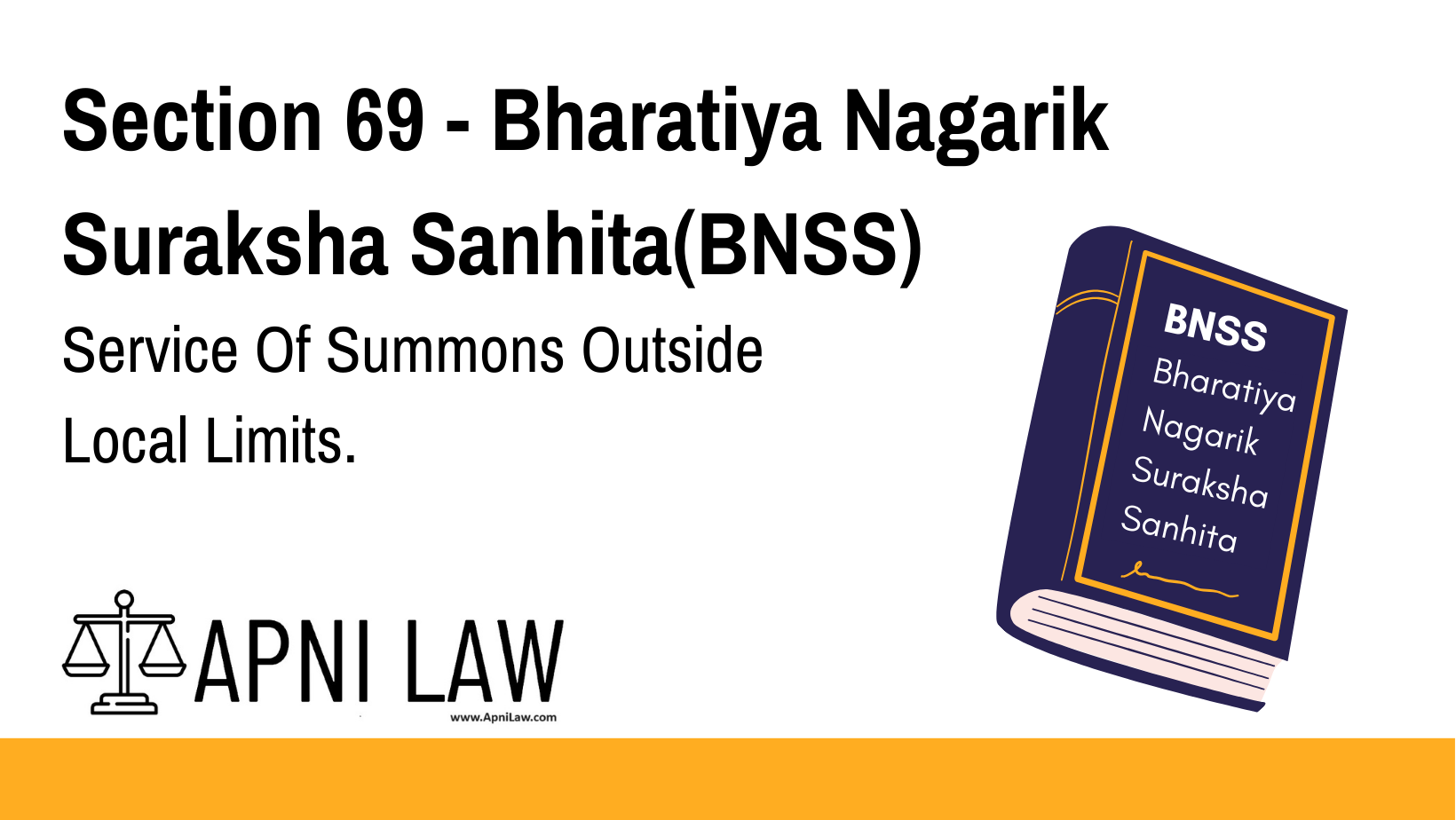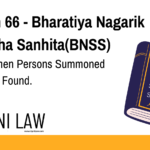Section 69: Service Of Summons Outside Local Limits
Code: Section 69 BNSS
When a Court desires that a summons issued by it shall be served at any place
outside its local jurisdiction, it shall ordinarily send such summons in duplicate to a
Magistrate within whose local jurisdiction the person summoned resides, or is, to be there
served.
Explanation of Section 69 BNSS
Key Provisions
-
Summons Beyond Local Jurisdiction
-
A Court cannot directly serve summons outside its jurisdiction.
-
Instead, it sends the summons in duplicate to a Magistrate in the area where the person resides.
-
-
Role of the Receiving Magistrate
-
The local Magistrate ensures the proper delivery of the summons.
-
This ensures legal compliance and smooth execution.
-
-
Why is this Rule Important?
-
Ensures efficient coordination between different Courts.
-
Prevents jurisdictional conflicts.
-
Illustration of Section 69 BNSS
Example 1: Court Issues Summons to a Person in Another City
A Delhi Court needs to summon a witness who lives in Mumbai.
The Delhi Court sends a duplicate summons to a Magistrate in Mumbai.
The Mumbai Magistrate ensures the summons is served properly.
Example 2: Court Requires Testimony of a Businessman Residing in Chennai
A Bangalore Court issues a summons to a businessman in Chennai.
The summons is sent to the Chennai Magistrate.
The Chennai Magistrate delivers the summons, ensuring compliance.
Common Questions and Answers on Section 69 BNSS
1. Can a Court directly serve a summons outside its jurisdiction?
✅ No, it must send it to the Magistrate in the area where the person resides.
2. How many copies of the summons must be sent?
✅ The Court must send the summons in duplicate.
3. What happens if the receiving Magistrate does not serve the summons?
✅ The issuing Court can inquire and take necessary legal action.
4. Does this apply to electronic summons as well?
✅ No, electronic summons are covered under Section 70(3) BNSS.
5. Why does the law require a local Magistrate to be involved?
🚀 To ensure proper legal oversight and prevent jurisdictional issues.
Conclusion
Section 69 BNSS streamlines the service of summons outside local jurisdiction by:
✅ Ensuring summons reach the right authority,
✅ Involving the local Magistrate for proper delivery, and
✅ Preventing jurisdictional conflicts.
This provision enhances the efficiency of the legal system and ensures fair execution of legal processes.
For more legal insights, visit ApniLaw today!












